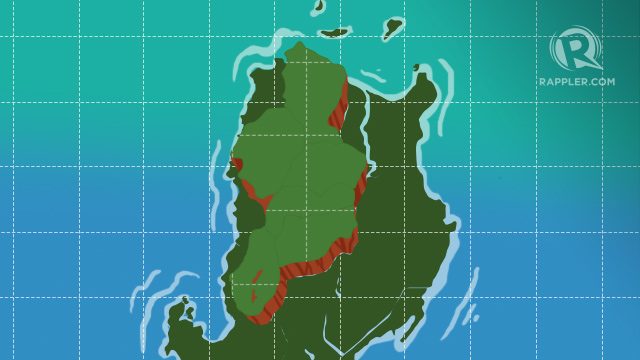SUMMARY
This is AI generated summarization, which may have errors. For context, always refer to the full article.

BAGUIO, Philippines – There were no work and classes on July 16, in the whole of the Cordillera, Monday having been declared as a non-working holiday by President Rodrigo Duterte. But it wasn’t because of the commemoration of the 1990 Luzon earthquake that killed thousands, but because July 15 was Cordillera Day.
July 15 is the 31st anniversary of the signing of Executive Order 220, which created the Cordillera Administrative Region, bringing Abra, Apayao, Benguet, Kalinga, Mountain Province, and Ifugao together. It was then President Corazon Aquino who signed the EO in 1987, spurred by the sipat or the ceremonial exchange of weapons at Mount Data with the late rebel priest Conrado Balweg.
Kalinga and Apayao had not separated then. Kal-Ap and Ifugao were still part of Region II then, while the rest were with Region I. It was a homecoming party, so to speak.
And yet, 31 years later, CAR remains a car, which has not moved toward autonomy. Ironically, the Duterte government’s barnstorming of federalism may derail this once again. At first, when Duterte first broached the idea of federalism, the stand of the Cordillera politicians was “autonomy first before federalism.”
Baguio Mayor Domogan is one such champion of autonomy first. Domogan said the region is not ready for a federal system of government and autonomy remains the answer for Cordillera. He said the CAR bodies in the past were not given funding by Congress, resulting to their deactivation, although no law had been passed to abolish the said bodies. He said local government units are not yet capable financially and administratively to be transformed into federal states, as most are still dependent on the internal revenue allotment (IRA) for funds.
The Regional Development Council (RDC)-Cordillera said that it would continue to push for regional autonomy even as it started public information drive on federalism.
RDC vice chairman and NEDA-CAR Regional Director Milagros Rimando said they would continue the clamor for an autonomous Cordillera region as Duterte has been pushing for a federal system of government for several years now even in his capacity as Davao City mayor.
A paper on the seminar-workshop on Autonomy and Federalism in Baguio City held recently showed that autonomy and federalism complement each other and could work together. But a newly-formed movement by Duterte supporters in the Cordillera wanted a more radical stand. They recently helped organize the 3-day Indigenous Peoples (IP) Luzon Cluster Convergence Summit bearing the theme, “Katutubong Pilipino Katuwang sa Pagbabago,” which commenced at the Philippine International Convention Center in Pasay City last July 4.
In this summit, their battlecryieshwere “Yes to federalism,” “No to autonomy,” “Yes to reactivate Executive Order 220,” and “No to HN 5343.” The last was the House bill authored by Cordillera representatives calling for a new version of Cordillera autonomy and the holding of a plebiscite to ratify it.
There is no guarantee that the region will still be whole after federalism. It could be whole or swallowed whole either by Northern Luzon or by the North-Central Luzon cluster, depending on what federalist subdivision is approved. And just like that, the 31st anniversart party of Cordillera autonomy may just be its last. – Rappler.com
Add a comment
How does this make you feel?
There are no comments yet. Add your comment to start the conversation.